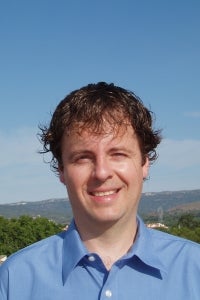Speaker: Hans De Sterck
A video of De Sterck’s is posted below or can be viewed on our Vimeo page.
Abstract
Social spreading processes are intriguing manifestations of how humans interact and shape each others’ lives. There is great interest in improving our understanding of these processes, and the increasing availability of empirical information in the era of big data and online social networks, combined with mathematical and computational modelling techniques, offer compelling new ways to study these processes.
I will first discuss mathematical models for the spread of political revolutions on social networks. The influence of online social networks and social media on the dynamics of the Arab Spring revolutions of 2011 are of particular interest in our work. I will describe a hierarchy of models, starting from agent-based models realized on empirical social networks, and ending up with population-level models that summarize the dynamical behaviour of the spreading process. We seek to understand quantitatively how political revolutions may be facilitated by the modern online social networks of social media.
The second part of the talk will describe a population-level model for the social dynamics that cause cigarette smoking to spread in a population. Our model predicts that more individualistic societies will show faster adoption and cessation of smoking. Evidence from a newly composed century-long composite data set on smoking prevalence in 25 countries supports the model, with potential implications for public health interventions around the world.
Throughout the talk, I will argue that important aspects of social spreading processes can be revealed and understood via quantitative mathematical and computational models matched to empirical data.
This talk describes joint work with John Lang and Danny Abrams.
 Presenter bio
Presenter bio

Hans De Sterck is a professor in the Department of Applied Mathematics at the University of Waterloo. His area of research is computational mathematics and scientific computing, with applications to problems in science, engineering and technology. A recent research focus is to develop models and algorithms for graph and social network problems, including multilevel clustering for community detection and conflict models for the dynamics of revolutions.
He is a member of the Centre for Computational Mathematics in Industry and Commerce at the University of Waterloo, and is cross-affiliated to Waterloo’s School of Computer Science. His research is funded by NSERC, the Province of Ontario, the Canadian Space Agency, MITACS, CANARIE, and CFI. He is associate editor of the SIAM Journal on Scientific Computing.